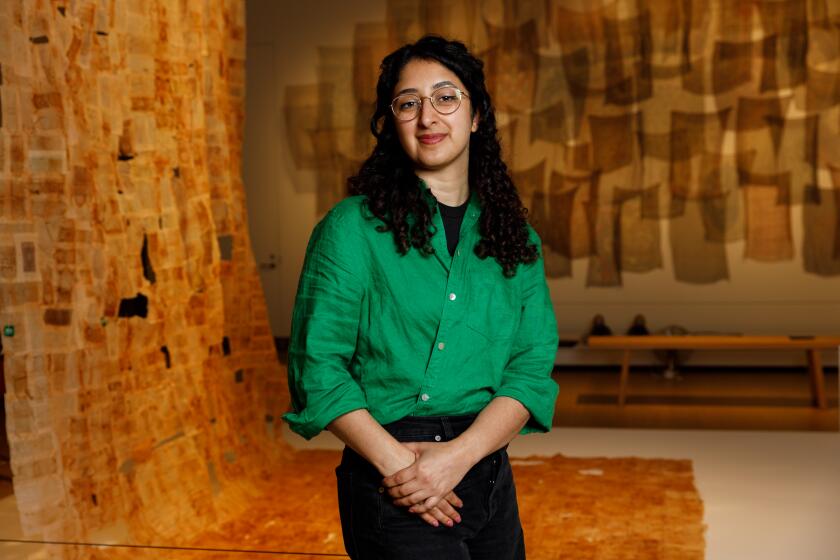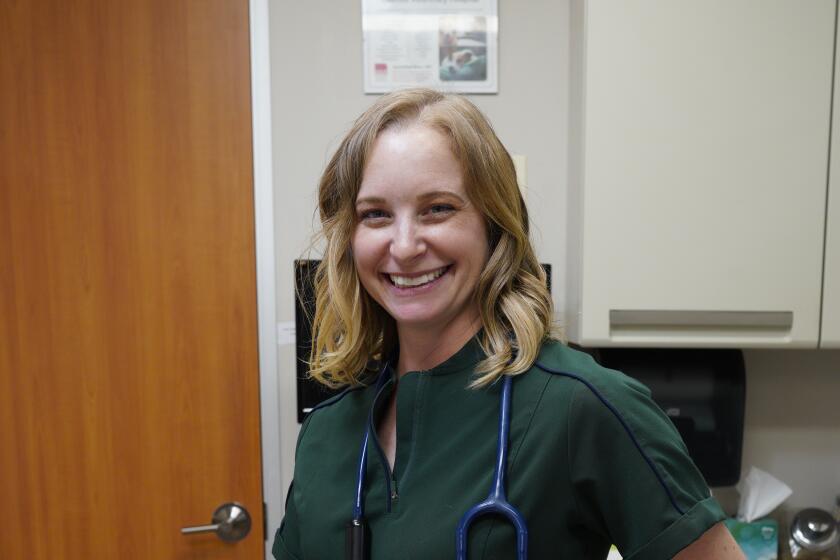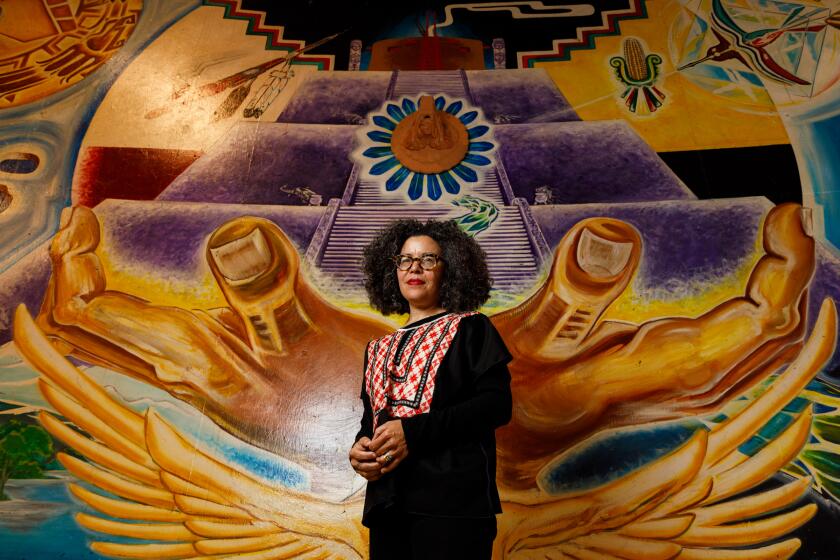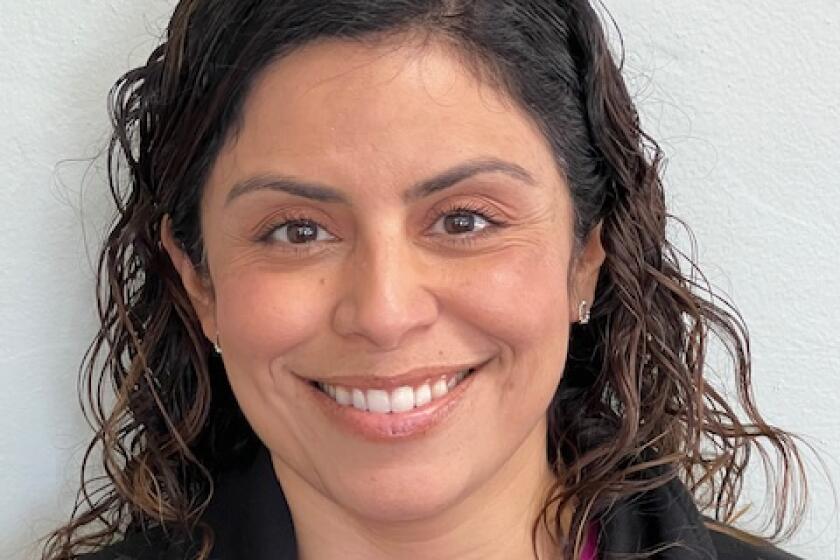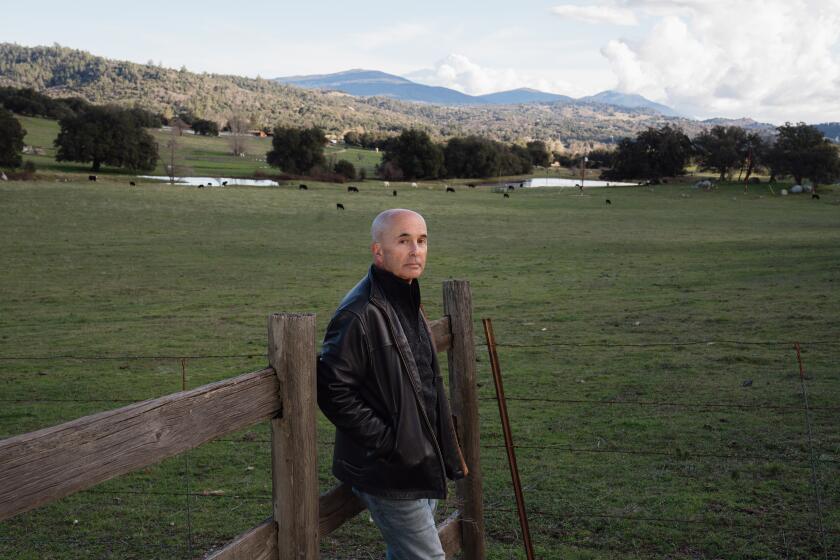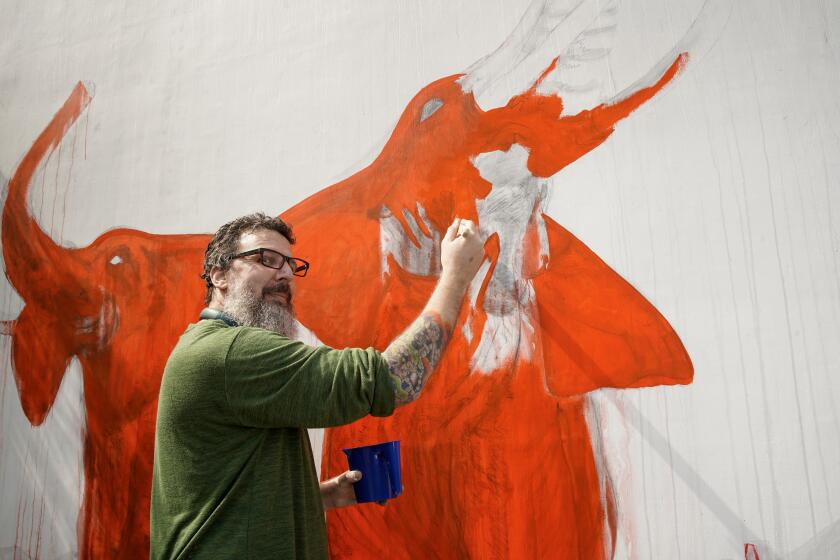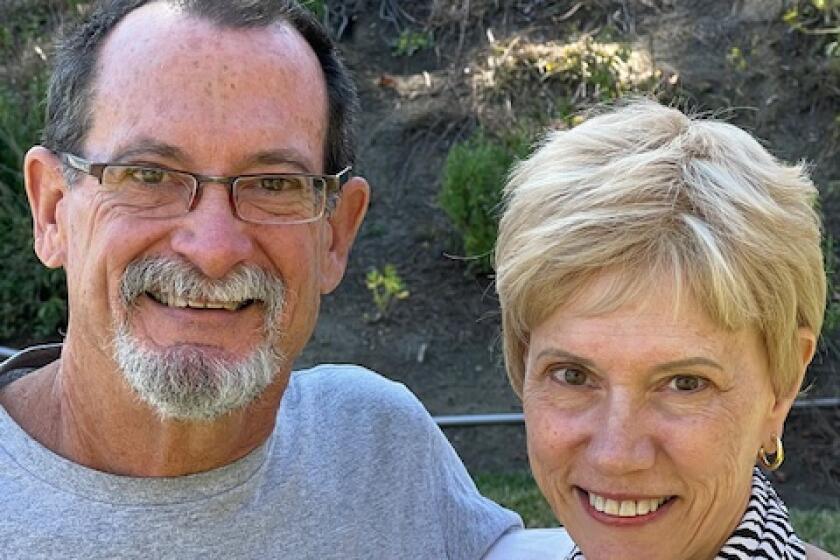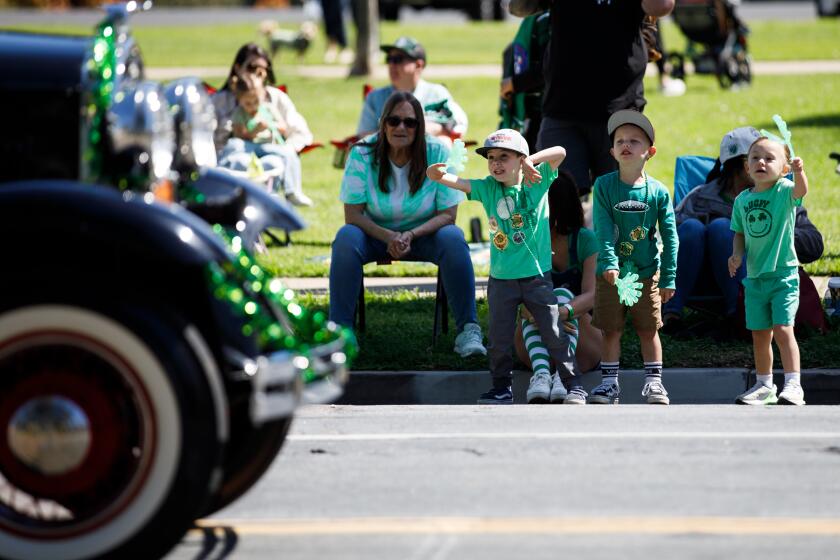His military past informs his filmmaking present
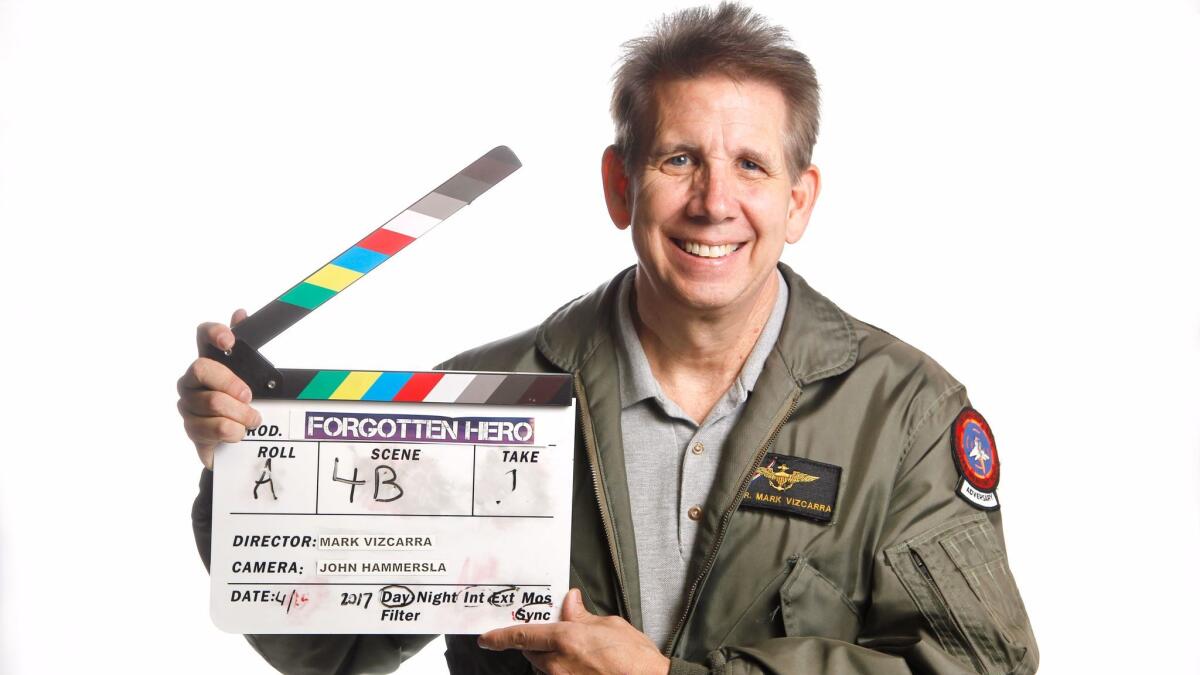
There were two things Mark Vizcarra knew he wanted to be when he grew up: a Navy pilot and a filmmaker. He’s done both. The retired Navy commander served 21 years in the military, flying the A-4 Skyhawk, the F-14 Tomcat, and the F/A-18 Hornet at Guantanamo Bay naval base in Cuba, combat air patrol missions in Kuwait and in fighter squadrons stateside. He ultimately flew more than 2,500 hours and is a graduate of the Navy Fighter Weapons School (also known as Top Gun), which means he knows plenty about the details and realities of military life. That realism is critical in his latest career as a filmmaker, and especially this week where he has two short films being screened at this year’s GI Film Festival San Diego, which continues through Sunday.
“Hollywood writers know very little of the heroic stories and incredible feats that occur on a daily basis (in the military); veterans do because they lived them,” he says. “A film festival that is specifically focused on the military and veterans expands storytelling of the human condition that is very rarely told.”
The festival features 33 films being screened in San Diego and Carlsbad, including premieres, stories about women in the military, the LGBTQ community, perspectives on military experiences from Latino, black and Asian service members, and wars from World War II to conflicts today.
Vizcarra, 57, lives in 4S Ranch with his wife, Tandy, and they have two sons. He’s also the president of Speed & Angels Productions and his festival short films, “Forgotten Hero” and “Once Guilty, Now Innocent, Still Dead,” are based on true stories that tell parts of history that were either withheld or forgotten. He took some time to talk about each of his films, what he hopes audiences take away from his projects, and why he’ll probably skip that “Top Gun” sequel.
Q: Did you see yourself eventually becoming a filmmaker?
A: I grew up going to the movies. My father always took me to the best aviation films ever made: “The Blue Max,” “633 Squadron,” “Battle Of Britain.” Movies quickly became my passion, and I started writing scripts when I was in fifth grade. By the time I was in ninth grade, I was using my father’s 8 mm camera directing and making movies. Where a lot of people struggle to find themselves not knowing what they want to be when they grow up, I never had that problem; I just had to choose which career to do first, flying or filmmaking.
Q: Tell us about the GI Film Festival San Diego.
A: The festival started in 2015 and continues to grow every year as it transforms into a military version of Sundance (Film Festival), with all the allure and attractions of one of the finest cities in the country. I can’t think of a better place to have a unique film festival that honors the men and women who’ve served. With San Diego being one of the largest military cities in the country, the number of filmmaking veterans continues to grow, and with the support of KPBS and the San Diego Film Consortium, service members now have a way to showcase their talents and work.
Q: Why do you think it’s important to have a film festival that is specifically focused on the military and veterans?
A: It’s the unique stories. The sad truth is that with the exception of law enforcement and firefighters, only veterans who have served know what it’s like to risk their lives, willing to sacrifice their own to protect not only the men and women they serve with but more importantly their family and friends back home.
What I love about 4S Ranch...
I love the reactions from all of our neighborhood kids when I take my 13-year-old basset hound for a walk. When they see him, and my dog sees them, they light up and the interaction is magical.
Q: You have two films in this year’s festival. It seems like there would already be a lot of pressure getting one film completed, let alone two. What was the experience of finishing two films for the same festival like for you?
A: The complexity of making a film is quite demanding, from preproduction to production to postproduction. However, it is a labor of love because of the story you’re telling. Luckily for me, I have an incredible team of top-notch professionals who I love to work with and that I can always count on, even when things start going to “hell in a handbasket” during production. It seems with all of my film projects, there’s always an element of something greater pushing the project to a successful completion. It always seems to magically appear out of nowhere at the most opportune times, that I now jokingly refer to them as “God moments” when they happen.
Q: Tell us about “Forgotten Hero.”
A: I am honored to tell this incredible true story of a living American hero who, after 60 years, has been nominated for the Medal of Honor for his heroic feat of protecting a carrier battle group from seven Russian fighters. I first met Royce (Williams) at a veterans’ group I belong to, and I was immediately in awe of him. I had no idea he was 90 years old. His story is compelling because what a lot of people don’t know, is that as the Korean War raged, Russia was not only supporting, but secretly fighting against the U.S. during this armed conflict with two superpowers at the brink of a nuclear World War III. “Forgotten Hero” is a short film that tells his story of being outgunned and outnumbered, but still able to take on seven, superior Russian fighters. He not only won, but was ordered to keep it secret for over 60 years. Realism in film defines what cinema is all about, and it is my focus to take the audience back to 1952, so they can visually experience this tumultuous time that has just been declassified and released.
Q: Tell us about “Once Guilty, Now Innocent, Still Dead.”
A: As I said, I am drawn to making films based on true stories. I have always wanted to do a western film from a historical perspective, with the mysteries of time being a central point to the story. I happened to come across a New York Times article reporting the Tom Horn retrial 90 years after the fact. The headline, “Once Guilty, Now Innocent but Still Dead,” captivated me. The reality of an innocent man who’d been hanged, impelled me to ponder one of life’s unique truths: only a person who is sentenced to death really knows the exact time they will die. I use that theme throughout this film to tell the true story of a 19th-century, legendary assassin in the middle of a clash between the cattle barons who hire him and the 20th-century expansion of the West. Tom Horn was a tracker and enforcer who was framed for a murder he didn’t commit. The compelling story of Tom Horn’s life is not well-known and I hope my film will present a part of American history that is now only a faded memory.
Q: What went into the decision to tell both of these stories as short films as opposed to another format?
A: Film production is very expensive, and although I’d love to tell both these stories in a full feature film format, until I’m able to get these projects fully financed, I have to work with what I have.
Q: What do you want audiences to get from your two films?
A: I’m also a big fan of history, I’d hope audiences are entertained as they learn about these true events.
Q: Do you have a favorite military-themed movie?
A: That’s a tough question. I have so many favorites, but if I had to pick one it would be the 1980 film “Final Countdown,” which has a unique, time-travel element. It’s about a modern U.S. carrier that, due to a freak storm at sea, ends up off the coast of Pearl Harbor on Dec. 6, 1941. When I saw the aerial cinematography along with the USS Nimitz and F-14 Tomcats dogfighting with World War II Japanese Zeros, it was a done deal for me and I decided to put my film career on hold and pursue a military aviation career first. The memorable experience of this film really hit home when, years later, I found myself on the deck of the USS Nimitz, strapped into an F-14 Tomcat, just like in the movie. As I sat in the cockpit waiting to be launched, I reflected back to that film and thought, “I must be the luckiest man on Earth.” A good film entertains, but a great film inspires and galvanizes action.
Q: You were a Navy pilot. Are you looking forward to the “Top Gun” sequel (or have you heard enough Maverick jokes over the years)?
A: Not really. The F-14 dogfight scenes weren’t too bad, and the carrier flight deck scenes were shot and told well, but that’s about it. The script and actions of the Navy fighter pilots were all Hollywood and just not real. During my Navy career in F-14 squadrons, if someone got the call-sign Maverick, it was a real put-down.
Q: What’s been challenging about your work in filmmaking?
A: Securing the financing to produce these films has definitively been the most challenging.
Q: What’s been rewarding about it?
A: Working with an incredible group of creative professionals is always the most rewarding because, in the end, we get to sit back and watch a film each one of us had a part in creating.
Q: What has it taught you about yourself?
A: Having written, produced, directed and edited three successful film projects that have gone on to film festivals, the one thing that it has taught me about myself is that I’m too much of a perfectionist. It drives my family nuts!
Q: What is the best advice you’ve ever received?
A: The best advice that I ever received came from my father, who taught me never to give up. Those simple words have enabled me to experience things in life that are absolutely amazing.
Q: What is one thing people would be surprised to find out about you?
A: That I’m obsessed with time. It’s the one thing in life that you can never get back, so I’m fixated on enjoying every moment while I’m alive.
Q: Describe your ideal San Diego weekend.
A: In my mind, any time with my family is an ideal San Diego weekend.
Email: lisa.deaderick@sduniontribune.com
Twitter: @lisadeaderick
Get Essential San Diego, weekday mornings
Get top headlines from the Union-Tribune in your inbox weekday mornings, including top news, local, sports, business, entertainment and opinion.
You may occasionally receive promotional content from the San Diego Union-Tribune.


